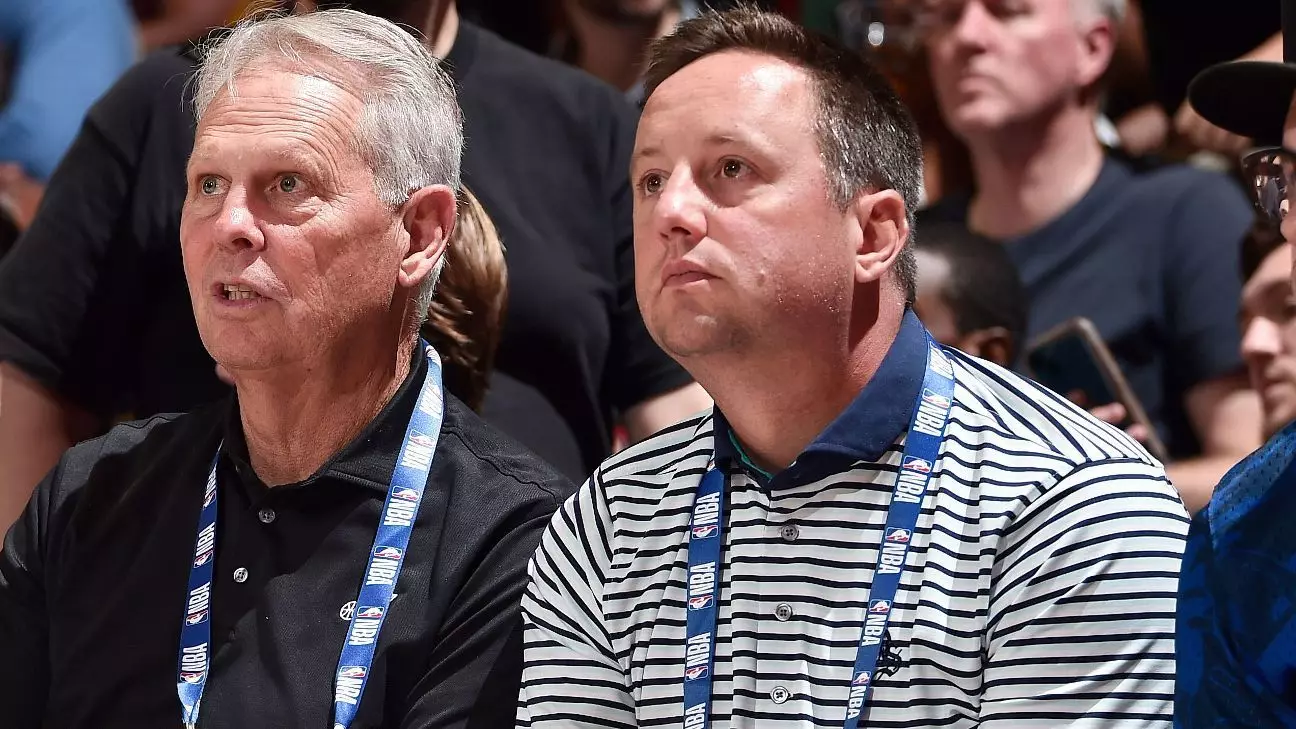The Utah Jazz have made a significant front-office change, bringing Austin Ainge on board as their new president of basketball operations. His appointment marks a pivotal moment for the franchise, as they seek to shift the narrative from a season riddled with losses to one filled with promise and growth. The decision also underscores the Jazz’s commitment to evolving their organizational structure, aiming for both stability and innovation. Ainge, son of team CEO Danny Ainge, brings a wealth of experience and a fresh perspective after 17 years with the Boston Celtics. It’s a calculated move by the Jazz, which signals a desire for a synergy between seasoned judgment and youthful ambition.
Austin’s hiring comes hot on the heels of coach Will Hardy’s long-term contract extension, suggesting a concerted effort by team governor Ryan Smith to solidify leadership and establish a focused vision moving forward. With Smith emphasizing the complementary skill sets of both Hardy and Ainge, it is evident that the Jazz are not merely dabbling in change; they are laying a foundation for a carefully orchestrated transformation.
Family Ties and Insightful Leadership
One of the most fascinating aspects of Austin Ainge’s hiring is the intertwining of family and professional life. With Danny Ainge having a long and successful career in the NBA as both a player and executive, it is natural to consider the influence this familial relationship may wield. Ainge has not only grown under the tutelage of his father but also under esteemed leaders like Brad Stevens during his tenure in Boston. These experiences have equipped him with broad insights into basketball management, player development, and operational strategy.
Smith’s confidence in Ainge signals a robust trust based on their long-standing relationship, as well as a strategic decision to harness Ainge’s extensive knowledge and experience. “It’s go time for us,” Smith remarked, investing in Ainge as a crucial asset to elevate the organization. His assertion that Ainge is the “next, young executive stud” reveals both urgency and foresight, indicating that the Jazz believe they are obtaining an executive who can build a competitive program in a rapidly evolving league.
Transitioning from a Championship Culture
Ainge’s previous role in Boston positioned him within one of the league’s most successful franchises over the past two decades. His contributions helped the Celtics secure an NBA championship in 2024, not to mention numerous playoff appearances. However, Ainge now finds himself stepping into a vastly different environment. The Jazz are currently in a stage of transformation, having finished with the worst record in franchise history last season. With this challenging backdrop, Ainge’s task will involve strategizing to revitalize a struggling roster, shifting focus from immediate accolades to long-term potential.
While the Jazz boast promising talents such as All-Star Lauri Markkanen, the realities of artistically rebuilding a roster will be far more complex. Ainge inherits a club clamoring for identity, with multiple first-round picks and young players under 23 years old, each representing both opportunity and uncertainty. These assets are not simply tools for immediate gains but essential pieces that require careful evaluation and development.
A Vision for the Future
Ainge’s enthusiasm about his new opportunity is palpable, as he expressed excitement about working alongside the Jazz’s young roster. “I couldn’t be more excited about the bright future of this organization,” Ainge stated, illuminating his intent to infuse a winning mentality within the team. His past experiences will undoubtedly inform his strategies, bringing an analytical yet instinctive approach to talent evaluation and team chemistry.
This focus on chemistry is particularly vital; understanding how players mesh on and off the court will be pivotal in achieving long-term success. Laying the groundwork for a cohesive, selfless culture, as Ainge mentioned, will be key to transforming this franchise’s trajectory. The pitfalls of immediate gratification in a win-now culture could be detrimental to the holistic development of the organization, and Ainge’s understanding of such dynamics will be crucial.
In this bold new chapter, both the Jazz and Ainge stand at a crossroads. The potential for greatness hinges not only on strategic acquisitions but also on cultivating a competitive spirit that has often eluded the franchise. As the Jazz anticipate the NBA draft, they have their sights set on the future, poised to make thoughtful decisions that will shape their path forward. With Ainge’s innovative mindset and tactical acumen leading the charge, Utah may very well be on the cusp of a renaissance.


Leave a Reply